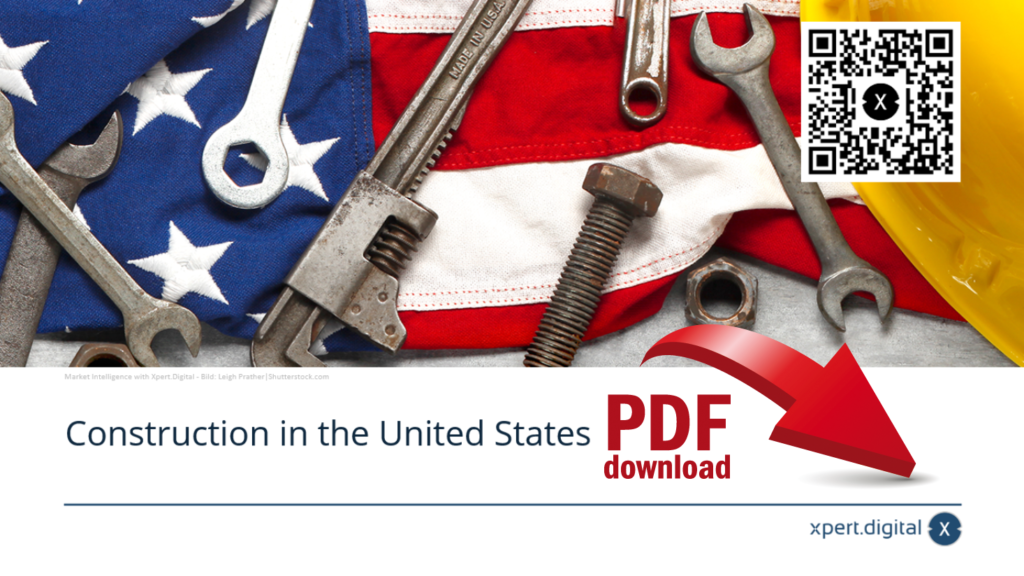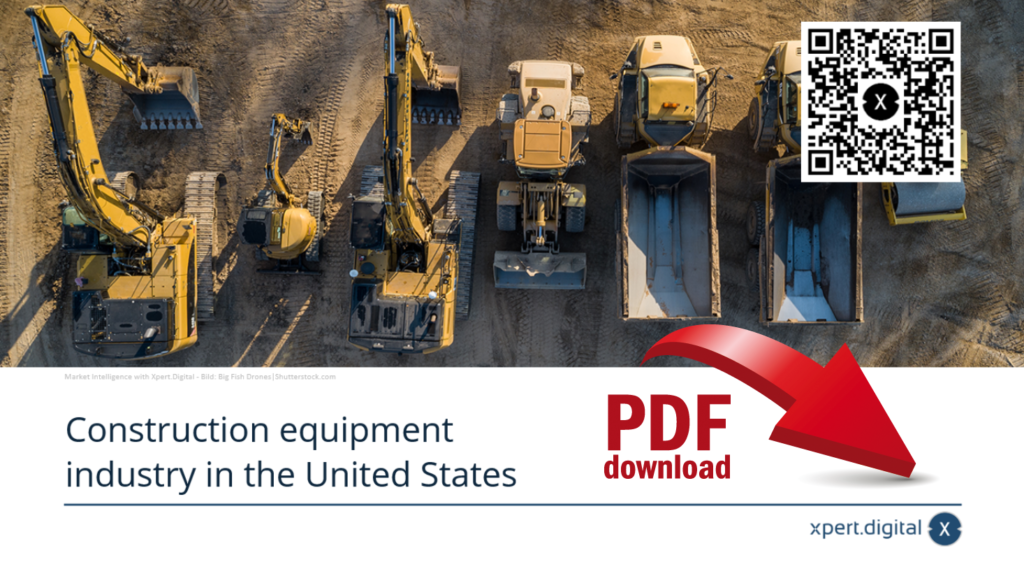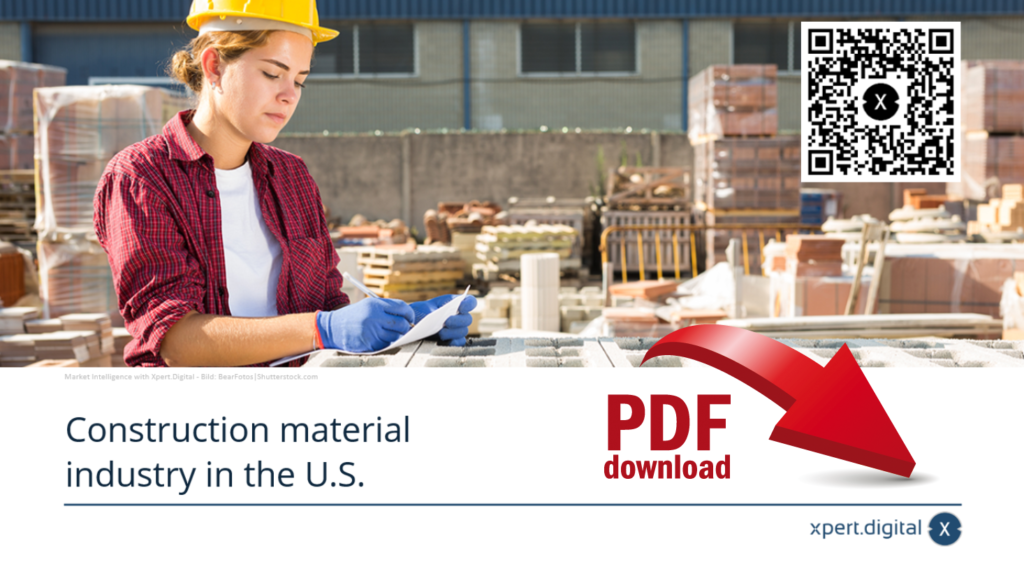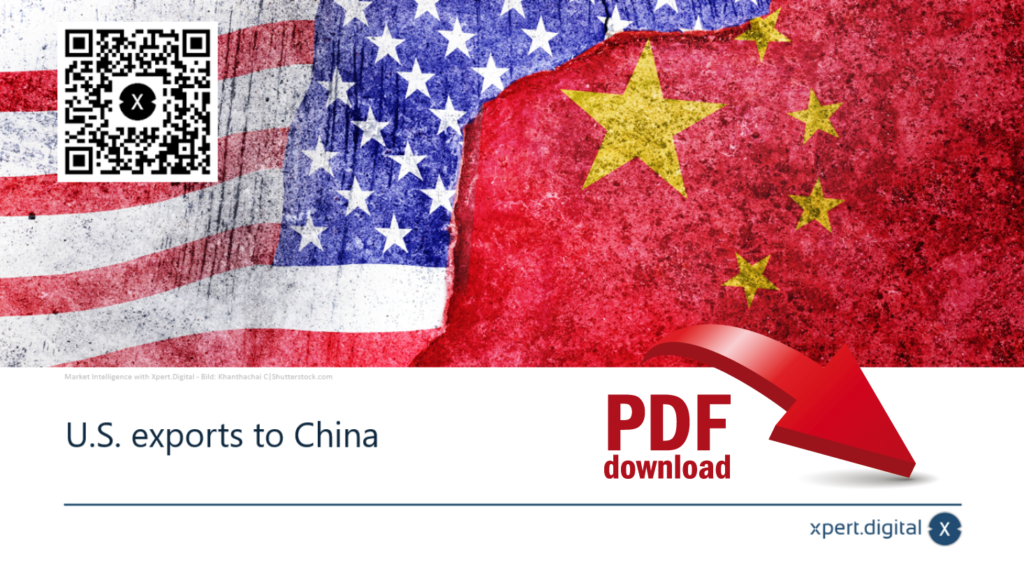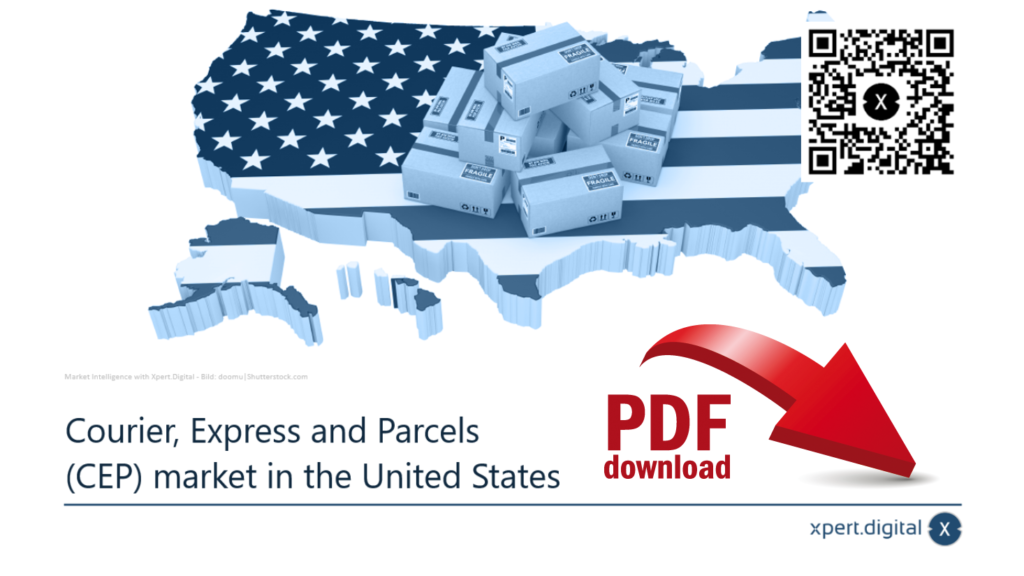Published on: November 14, 2024 / update from: November 14, 2024 - Author: Konrad Wolfenstein
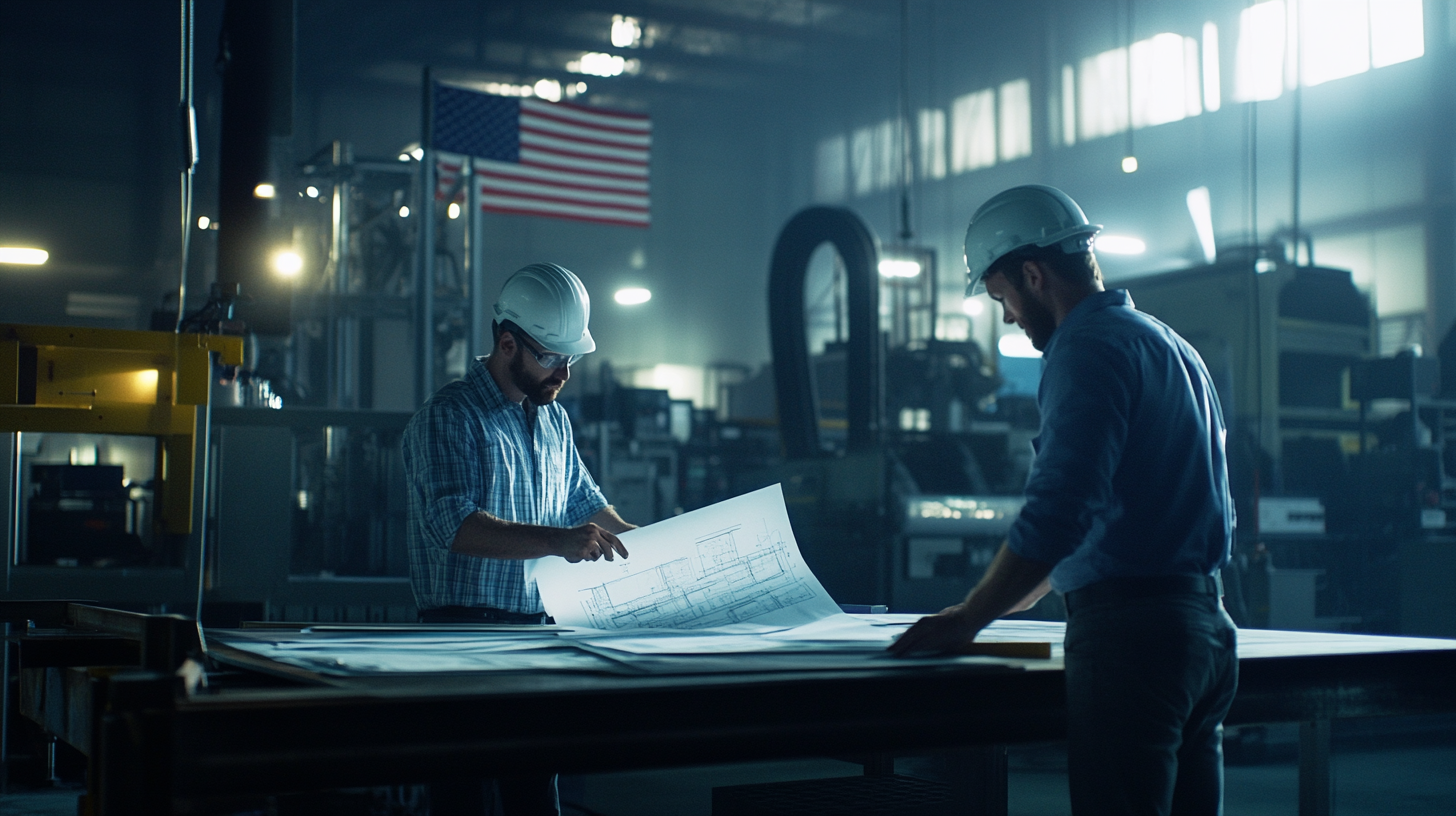
Mechanical engineering and industry: Looking for US experts? Focus and expansion in the US market – Image: Xpert.Digital
USA expansion for German companies: New paths, local production and strategic advantages
After Donald Trump's election victory and the associated political uncertainty in Germany, many German companies are increasingly examining their involvement in the USA. Export-dependent sectors such as mechanical engineering and the automotive industry, which were alarmed by Trump's announced import tariffs, are particularly affected.
Main reasons for focusing on the US market
1. Increased import duties
Trump's plans to dramatically increase tariffs on European goods have caused many German companies to rethink their production strategies. German medium-sized businesses in particular, which are heavily dependent on exports, are forced to examine alternatives in order to ensure competitiveness on the US market. Relocating production to the US could be a solution to avoid tariffs while benefiting from possible tax breaks.
2. Tax relief and energy prices
The prospect of tax relief for companies locating in the USA as well as the comparatively low energy costs make the US market attractive for German companies. Especially given the high energy costs in Germany, relocating production is increasingly seen as making economic sense.
3. Supply chain resilience
Global supply chains have been disrupted for years by geopolitical tensions and the COVID-19 pandemic. Many companies are therefore increasingly relying on a strategy of local production for local markets. This means that goods intended to be sold in the United States will also be produced there. Trump's election victory offers many companies an opportunity to further advance this strategy.
Demand for US experts
As considerations for relocating production grow, so does the demand for experts with specific knowledge of the US market. Interim managers with expertise in areas such as:
- Finance
- Production relocations
- Supply chain management
These experts help companies conduct feasibility studies and develop concrete action plans for a possible expansion or relocation to America.
Suitable for:
Challenges and opportunities
opportunities
Companies that already produce in the USA or are planning to expand production could benefit from Trump's policies. Tax relief and a stable energy supply offer long-term benefits.
challenges
Despite these opportunities, there are also concerns. Some companies are hesitant to set up new production facilities due to the uncertain political situation in the USA or high investment costs. In addition, the shortage of skilled workers in US industry could pose an obstacle.
New planning and change of strategy?
German industry is facing a crucial phase in which it must realign its strategies for the US market. Donald Trump's election victory has caused many companies to rethink their production locations and focus more on the US market. At the same time, there remains great uncertainty as to whether these shifts will be profitable in the long term.
- Construction in the United States – PDF Download
- Construction equipment industry in the United States – PDF Download
- Construction material industry in the US – PDF Download
- B2B marketing in the US – PDF Download
- US exports to China – PDF Download
- CEP Market USA – PDF Download
Focus on the US market: Opportunities and challenges for German industrial companies
In a rapidly changing global economy in which political decisions and economic conditions are becoming increasingly important, the USA is becoming increasingly important for many German industrial companies. Since the US elections and Donald Trump's term in office, numerous German companies have increasingly evaluated the possibility of expanding their presence on the American market. The prospect of tax breaks and more favorable production conditions in the United States are leading to intensive consideration of potential expansion strategies. Specialists in areas such as finance, production relocation and supply chain management who can support companies in reviewing and implementing such strategies are particularly in demand.
Relocation of production in response to trade policy changes
During his term in office, Trump announced that he would drastically increase import tariffs, which caused great concern among many German medium-sized companies with significant business activity in the USA. The threat of higher tariffs and other protectionist measures brought with it a reassessment of existing business models and supply chains. For many German companies, the idea of relocating production to the USA became more attractive in order to avoid potential customs costs and benefit from the tax relief that was promised for companies based in the USA. The search for qualified interim managers and experts who are familiar with international production relocations increased as companies wanted to gain an overview of the economic and organizational challenges of such a step.
However, the concrete implementation of production relocations requires long-term planning and a solid strategic basis. Although the announcement of Trump's policies had already caused many companies to rethink their strategies, no actual decision to relocate production had been made at the time. Nevertheless, the ongoing pressure from high energy costs in Germany and the prospect of more favorable production conditions in the USA suggest that such a decision could well be on the agenda of German companies in the future. Some of these companies have already hired external experts, including specialist consultancies such as Xpert.Digital, to analyze the feasibility and financial impact of moving production to the US.
Optimistic sentiment about the US economy
There is currently an optimistic to euphoric mood in the boardrooms of German industrial companies regarding the business prospects in the USA. Many executives see the USA as a country of economic opportunity and hope to gain access to an enormous sales market through a stronger market presence. The comparatively low energy prices, the business-friendly tax regulations and the stable demand in the USA are considered to be key factors that could promote the growth ambitions of German companies.
However, this optimism is based not only on short-term political changes, but also on the idea of a “good citizen” approach: German companies that want to be successful in the American market in the long term are increasingly relying on a local production presence in order to establish themselves in US society to position ourselves as responsible corporate citizens. This approach not only helps them avoid potential tariff burdens, but also earns the trust of American consumers and business partners. However, this strategy remains a long-term investment that extends well beyond a single US presidential term and requires extensive calculation and strategic planning.
Cooperation models as an alternative to individual relocation
At the same time, there are also companies that shy away from relocating production on their own due to the uncertain political environment in the USA. Particularly in the medium-sized sector, cooperation and production communities are increasingly being considered. These companies, which are not in direct competition with one another, are increasingly exploring the possibility of joining forces and establishing joint production facilities in the USA. By pooling their resources and sharing risks and investment costs, they could potentially act in a more economically advantageous manner.
Such collaborations could not only reduce financial burdens, but also increase the chances of successfully opening up the complex American market. Experts and consulting firms such as Xpert.Digital play an important role as mediators and project managers to facilitate coordination and collaboration between the companies involved and to efficiently implement the common goals. This could represent an attractive alternative for German medium-sized companies to take advantage of the opportunities on the US market without having to bear the entire investment costs and risks alone.
Change of strategy towards local production
German companies are considering relocating production capacity to the USA at a time when globalized supply chains are increasingly being questioned. The risks of “uninhibited global logistics,” as it is often called, are becoming increasingly clear in times of economic and political uncertainty. Events such as trade conflicts, pandemic-related disruptions in supply chains and increasing political tensions have led many companies to rethink their approach. The new trend is towards so-called “nearshore production”, in which products are manufactured as close as possible to the target markets.
For German companies serving the US market, establishing a local production facility could be an answer to the challenges of global logistics. By producing locally, they could reduce delivery times and costs, reducing the risk of supply chain disruptions while avoiding the tariff burdens that would be incurred when importing goods into the US. This would also enable them to respond more flexibly to the demands of the US market and thereby strengthen their competitive position.
Challenges and Prospects of US Expansion
Although the opportunities in the US market are promising for German companies, there are numerous challenges that cannot be ignored. The cultural differences between the German and American business worlds often represent a hurdle that should not be underestimated. While in Germany, for example, the focus is on long-term planning and high product quality, American companies are often more focused on short-term profits and a high level of flexibility. These differences can lead to misunderstandings and points of friction if German companies transfer their business models to the USA without adjustments.
In addition, the legal and regulatory framework in the USA can differ greatly from those in Germany. Labor law, product liability and environmental standards differ significantly depending on the state. It is therefore crucial for German companies that want to be successful in the USA to be aware of these differences and to adapt their business strategies accordingly.
Another obstacle is the strong competition in the US market. In many industries, such as the automotive or mechanical engineering sectors, German companies already face established American and international competitors. In order to assert oneself in this market, a targeted differentiation strategy is necessary that emphasizes the strengths of German products - such as high quality, reliability and innovation - while at the same time meeting the local needs of American consumers.
The US market as a strategic growth opportunity
The US market undoubtedly offers enormous potential for German industrial companies, but also various challenges. Expansion into the US should not be seen as just a short-term response to political changes, but as a strategic investment for the future. By building local production capacities and adapting to specific market requirements, German companies can strengthen their competitiveness while reducing the risks of global supply chains.
Given the opportunities and risks of the American market, it is crucial for German companies to obtain comprehensive information and carefully prepare their expansion plans. The use of experienced experts and specialized consulting firms can help you overcome the complex legal, cultural and economic challenges and achieve long-term success in the US market.
Suitable for:


